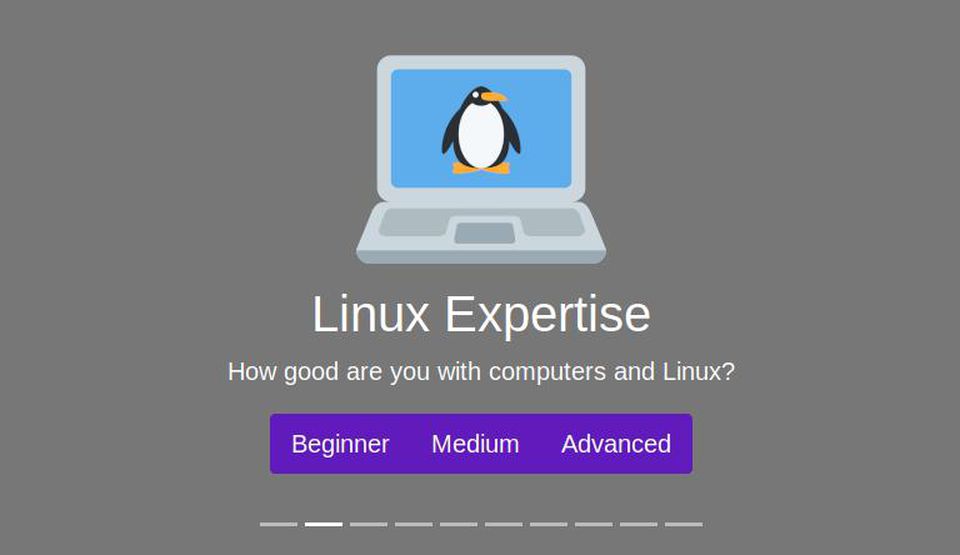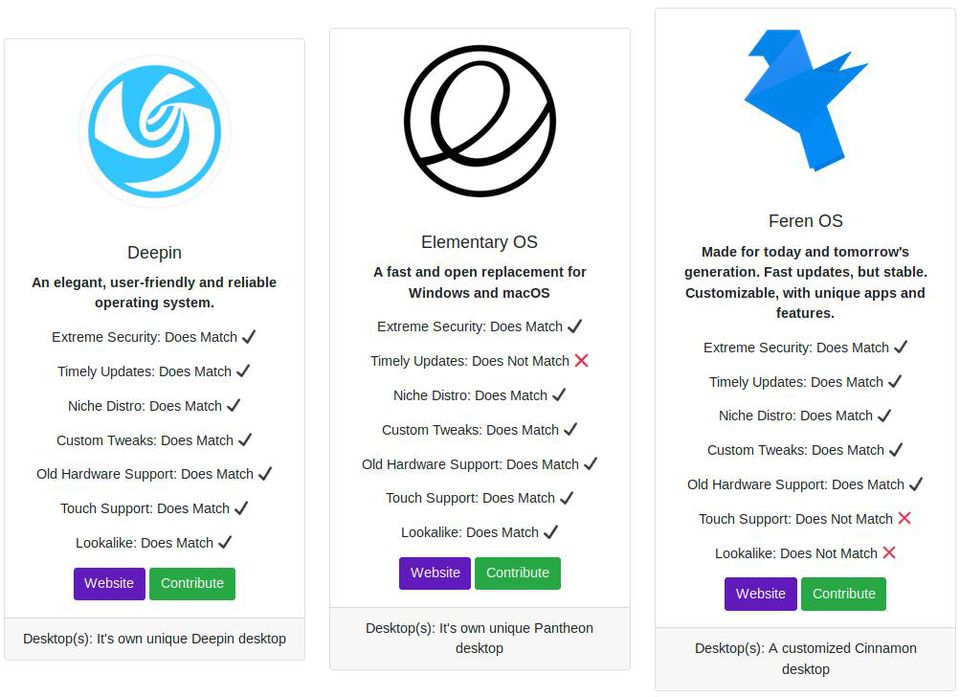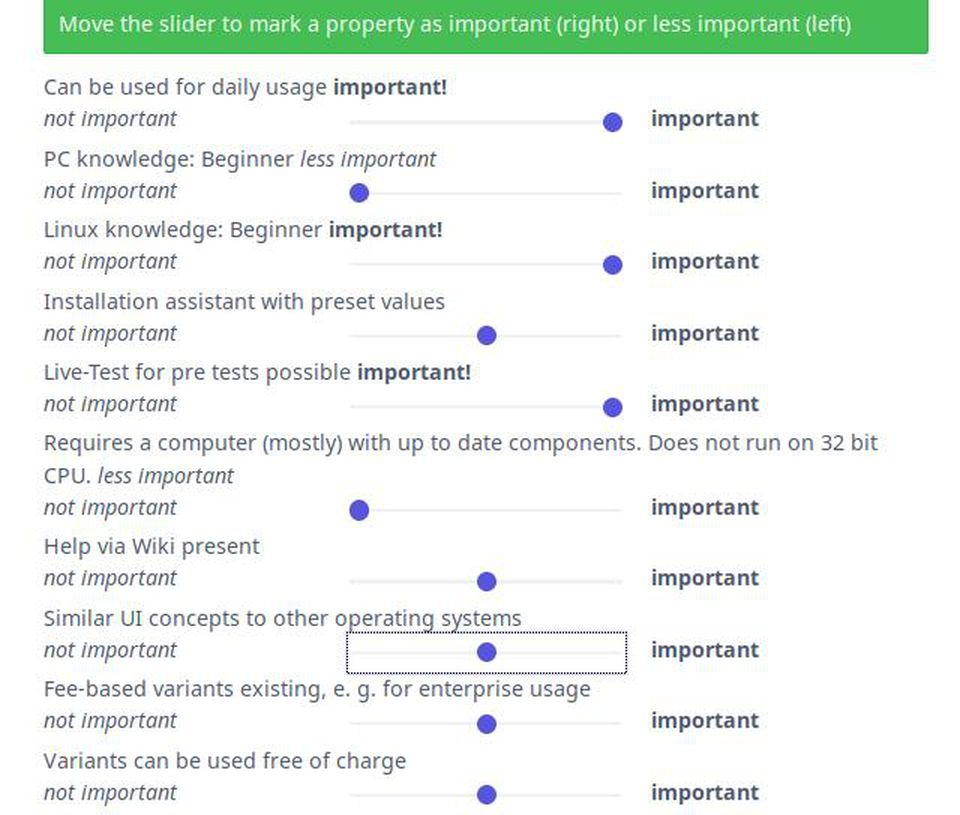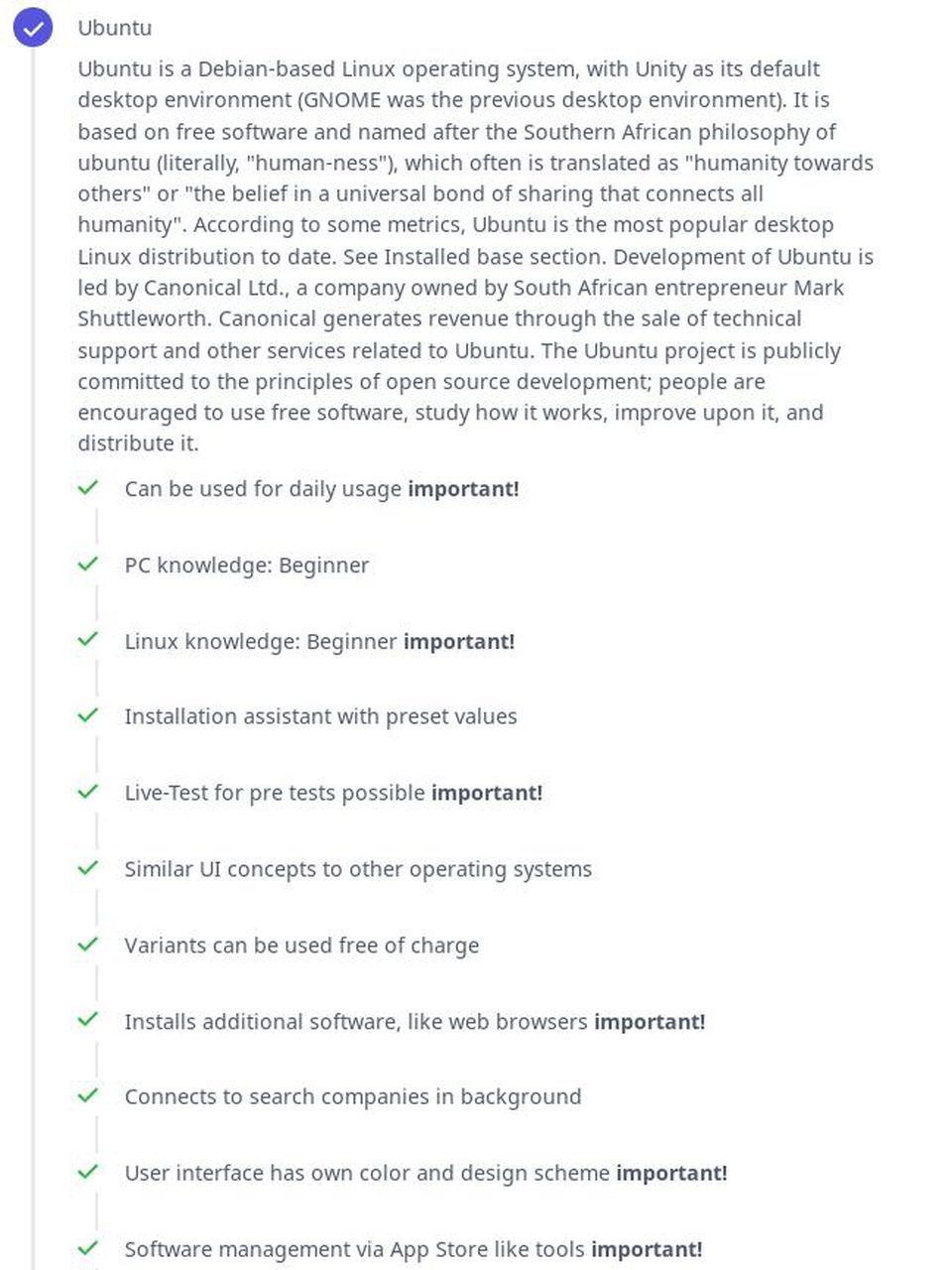[et_pb_section fb_built=”1″ _builder_version=”3.0.47″][et_pb_row _builder_version=”3.0.48″ background_size=”initial” background_position=”top_left” background_repeat=”repeat”][et_pb_column type=”4_4″ _builder_version=”3.0.47″ parallax=”off” parallax_method=”on”][et_pb_text _builder_version=”3.0.74″ background_size=”initial” background_position=”top_left” background_repeat=”repeat”]
Despite all of my complaining about Windows 10, I will admit that the operating system in use by 700 million people has one clear advantage over Linux: it’s way simpler to choose a version. Deciding to install a Desktop Linux OS is an awesome decision that opens the door to more choice than you can imagine. For beginners, that wealth of choice can sometimes transform into confusion and frustration without a little guidance. Hopefully that’s why you’re here, so let me introduce two websites that help narrow down your options based on your personal preferences!

Linux distributions TEAM ENCRYPT / LINUX IN A NUTSHELL 6TH ED.
If you’re brand new to the world of Linux on the desktop, you may be wondering: which preferences exactly? Glad you asked! These questions may give you insight into how much freedom of choice Linux offers, and how extensively certain distributions are tailored for your needs.
- Do you want to use Linux for everyday use? For programming? For complete anonymity?
- Do you have very old hardware that isn’t supported by Windows?
- Do you need ironclad security?
- Do you want to heavily customize your desktop appearance?
- Do you want the very latest or stable versions of software?
- Do you want to test a Linux distro from a USB stick without having to install it first?
- Does touchscreen support matter to you?
- Are you a complete Linux beginner or do you have some experience with the command line?
LibreHunt.org
My first recommendation is the product of 15-year-old open source enthusiast Avi Wadhwa, who was inspired to create Librehunt.org after a classmate peeked at the “fancy Linux install” on his laptop. His specific reason perfectly encapsulates the often daunting decision new Linux users face: “After explaining to him what Linux was he immediately wanted it, but got stuck in deciding which distro, out of the current thousands, would he use,” Wadhwa explains.

Librehunt.org distro chooserAVI WADHWA
When you first land at LibreHunt, you get a simple one-pager that manages to lay out the definitions of an operating system, Linux and open source in fun, conversational language. And in less than a few hundred words. It’s no easy feat to distill these things into a simple landing page that everyone can grasp. You can show this page to your grandmother or your child and they’ll have no issues understanding the concepts.
Once you scroll down, you’re invited to wade through the “gazillions” of Linux distros by answering a few questions. The resulting suggestions are pulled from a curated list. They’re displayed in ascending order based on the distros that most closely match what you want. Go ahead, give it a spin!
Here’s the top 3 suggested distros from my own results page:

My top 3 results from Librehunt.orgAVI WADHWA
This is interesting because I’m typing this article on Deepin, which I’ve fallen in love with since my installer review. Even if I don’t stick with Deepin, the suggestions above capture what I’ve been searching for in my “forever distro.” I’ve also been drawn to elementary OS, so I don’t feel like I’ve been led astray based on my answers to Librehunt’s questions.
And hey, I’d never even heard of Feren OS. So a bit of discovery gets mixed in!
DistroChooser
The goal of DistroChooser is the same as LibreHunt’s but it takes a more refined — perhaps even exhaustive — approach to finding your ideal Linux OS. DistroChooser doubles the amount of questions and drills down into more detail, allowing for multiple answers. Here you’ll also get into installation presets, distro idealogies and questions about building software from source. These don’t necessarily sound like questions a beginner would have, but the way they’re explained is presented plainly so as not to overwhelm rookies.
What’s cool is that if your answers start to indicate that you’re an absolute beginner, DistroChooser will preface stuff like security enhancement and special feature preferences with “This question is too far away from your requirement profile. You can answer it, but you can safely skip it.” (So I skipped it!)
Once you’ve answered the site’s 16 questions you can optionally use a slider to assign weight to each one, indicating if it’s more or less important to you.

Assign personal importance to the 16 questionsDISTROCHOOSER.DE
The results page is enormous, but it also descends in order of importance. The #1 recommendation checks off the most features that meet your needs, while lower results have less exact matches.
I wanted to see if I could arrive at roughly the same results by answering the site’s 16 questions in a way that closely resembled my answers at LibreHunt. Would I be given similar suggestions?
Distrochooser’s top result for me was Ubuntu, which is no surprise (note that it was the 4th result on Wadhwa’s LibreHunt chooser). Ubuntu is what kicked off this Linux journey for me, and it’s still my daily driver — even if it’s being challenged by the likes of Deepin and elementary OS.
UPDATE: One of my eagle-eyed readers who happens to teach Linux spotted the fact that DistroChooser lists Unity as the default desktop environment for Ubuntu. It is in fact Gnome 3, and has been for some time. This makes me concerned that DistroChooser may be slightly out of date and not recommending distros as efficiently as it could. I’ll dig into it and update you.

Ubuntu was my #1 result at DistrochooserDISTROCHOOSER.DE
The top 5 overall recommendations in descending order: Ubuntu, Linux Mint, Fedora Workstation, openSUSE and elementary OS. All are superb in my eyes, but there are two here I wouldn’t recommend for absolute beginners with minimal experience.
Which One Is Better?
Applying a critical lens and picking a favorite is outside the scope of this article, but I encourage you to just try both! My personal preference is LibreHunt, because it’s dead simple and visually appealing. It makes an effort to cut out the fluff and get to the core of what you want. That’s where I’ll steer people when they ask “hey, I want to ditch Windows but what Linux OS should I use?”
DistroChooser lets you really dial in your specific requirements and needs, but perhaps to a fault when it comes to certain beginners who just want an OS that works flawlessly out of the box. But I’ll emphasize again that they’re both incredibly valuable tools.
Then again, that’s the beauty of Linux. You don’t have to fit a mold. You don’t have to adapt to the operating system you’re using. Linux can adapt to you, whether that’s right out of the box or by your own hand. And I’m pretty confident you’ll find a satisfying and comfortable OS by using one or both of these awesome tools.
If you see one or two distro recommendations in common across both sites, you’ve probably struck gold and that’s a good place to begin. So have fun with these, and enjoy the journey!
This article was originally published on Forbes by
[/et_pb_text][/et_pb_column][/et_pb_row][/et_pb_section]

